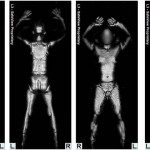The increasing use of TSA X-ray full-body scanners in airports across the U.S. is turning into a huge controversy, with many people objecting to the intrusiveness and invasion of privacy concerns which the scanners bring. But the Transportation Security Administration (TSA) is fighting back saying that the machines are an integral part of several layers of security to help keep air travel safe.
 Within the past week or so, a grass-roots campaign has begun calling for air travelers to boycott the full-body scanners on the day before Thanksgiving, November 24, and instead urging flyers to opt to pass through a metal detector and be patted down by screeners. While air travelers appreciate the the need for safety, many believe that full-body scanners and insensitive pat downs violate ones’ liberties and undermines privacy.
Within the past week or so, a grass-roots campaign has begun calling for air travelers to boycott the full-body scanners on the day before Thanksgiving, November 24, and instead urging flyers to opt to pass through a metal detector and be patted down by screeners. While air travelers appreciate the the need for safety, many believe that full-body scanners and insensitive pat downs violate ones’ liberties and undermines privacy.
The recent release of 100 photographs which had been saved by U.S. Marshals operating a wave scanner in the Orlando, Florida courthouse and obtained under the Freedom of Information Act, in the conduct of a Gizmodo investigation, has served only to deepen the controversy over body scanners.
After all, the TSA has indicated repeatedly that images of naked bodies are not saved and will never be made public. But who knows for sure after the illegally-saved images of the scans of public servants and private citizens by the U.S. Marshals in Orlando?
Beyond intrusiveness and privacy concerns, four University of California professors have raised a number of issues regarding safety of the full-body scanners, pointing out that, while the X-rays of the scanners only make it just beneath the skin’s surface and the total volume of tissue responsible for absorbing the radiation is quite small, it is precisely those body parts just under the skin that are susceptible to cancer, namely the breast and testicles. While the professors do not say the full-body scanners are harmful, they call for more testing to be done to determine whether full body scanners are safe.
U.S. Senators will meet today in Washington to question TSA Administrator John Pistole about the intrusiveness and effectiveness of the screening procedures at airports.
Meanwhile, the Central Florida Republican who will most likely head the powerful U.S. House Transportation sub-committee come January, Representative John Mica, thinks, the TSA has gone too far.
“Right now TSA has it wrong,” Mica said. “I think TSA is overstepping its bounds.”


